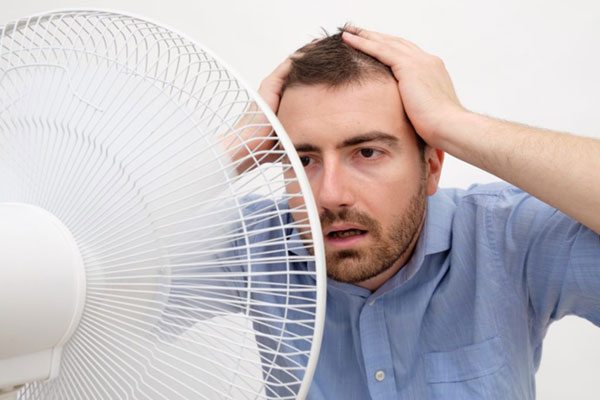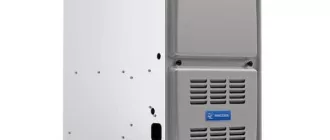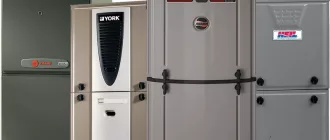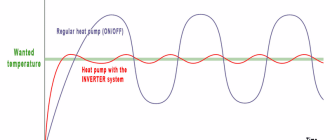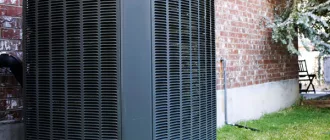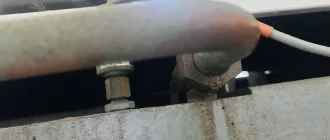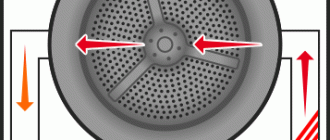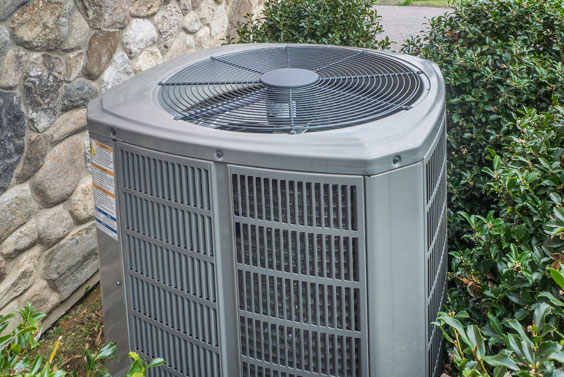
Why You Shouldn’t Attempt DIY HVAC: The Importance of Hiring Professionals for Your Heating and Cooling Needs
When it comes to HVAC systems, the dangers of DIY are real. While it might be tempting to save some money and try to fix or install a HVAC system on your own, it’s often best to leave it to professionals.
DIY HVAC can lead to:
1. Safety Hazards: HVAC systems involve working with electrical components, gas lines, and refrigerant. Without proper knowledge and experience, attempting DIY repairs or installations can put you at risk of electrical shocks, gas leaks, and exposure to harmful chemicals.
2. Void Warranties: Most HVAC manufacturers require professional installation and maintenance to keep the warranty valid. If you attempt DIY HVAC work and something goes wrong, you could void your warranty, leaving you responsible for any future repairs or replacements.
3. Inefficient Performance: HVAC systems require precise measurements, calculations, and adjustments for optimal performance. DIY attempts may result in improper sizing, installation, or calibration, leading to inefficient heating and cooling, higher energy bills, and frequent breakdowns.
That’s why it’s best to trust the professionals. HVAC professionals have the knowledge, training, and equipment necessary to safely and effectively handle HVAC systems. They can diagnose problems accurately, perform repairs and installations correctly, and ensure your system operates at its best.
Don’t risk your safety, warranty, and comfort. Contact our professional HVAC team today for all your heating and cooling needs.
The Dangers of DIY HVAC
When it comes to DIY projects, there are some things that are better left to professionals, and HVAC (Heating, Ventilation, and Air Conditioning) is definitely one of them. While it may be tempting to save some money by attempting to fix or install your HVAC system yourself, the dangers far outweigh any potential cost savings.
One of the biggest dangers of DIY HVAC is the risk of causing further damage to your system. HVAC systems are complex and delicate, and without proper knowledge and experience, you could end up making things worse. A small mistake could lead to a major malfunction, resulting in costly repairs or even the need for a completely new system.
Another danger of DIY HVAC is the potential for personal injury. HVAC equipment can be dangerous if mishandled, especially when dealing with electrical components and high-pressure refrigerants. Improper handling or installation of these components can result in shocks, burns, or even explosions. Professionals are trained to handle these risks and have the proper safety equipment to protect themselves.
DIY HVAC also poses a risk to your health. HVAC systems involve cleaning air ducts and dealing with mold, dust, and other allergens. Without the proper knowledge and equipment, you could expose yourself to these harmful substances, leading to respiratory problems or other health issues. Professionals have the necessary tools and expertise to safely handle these situations.
Ultimately, DIY HVAC may seem like a cost-effective solution, but the risks it presents make it far from the best option. Hiring professionals ensures that your HVAC system is properly installed, maintained, and repaired, giving you peace of mind and saving you money in the long run. So, when it comes to your HVAC needs, don’t DIY – leave it to the experts.
Safety Hazards
The dangers of DIY HVAC are very real and should not be taken lightly. While it may seem tempting to try and fix or install your HVAC system yourself, it’s best left to professionals who have the knowledge and expertise to handle the job safely.
Here are some of the safety hazards that can arise when attempting DIY HVAC:
- Electrical shock: HVAC systems involve working with electricity, and if not handled properly, there is a risk of electrical shock. Professionals are trained to handle electrical connections safely, reducing the risk of injury.
- Gas leaks: HVAC systems that use natural gas or propane can develop leaks if not installed or repaired correctly. Gas leaks can lead to carbon monoxide poisoning or even explosions. Professionals know how to properly handle gas connections to ensure safety.
- Inadequate ventilation: Improper installation or repairs can result in inadequate ventilation, which can lead to poor indoor air quality and respiratory issues. Professionals understand the importance of proper ventilation and can ensure it is implemented correctly.
- Fire hazards: Incorrectly installed or repaired HVAC systems can pose a fire hazard. Professionals are aware of the necessary safety measures to prevent fire incidents and can ensure that all components are installed correctly to minimize risks.
- Personal injury: Working with heavy HVAC equipment or in confined spaces can increase the risk of personal injury. Professionals have the necessary equipment and training to safely handle and maneuver HVAC components, reducing the risk of accidents.
In conclusion, the best course of action when it comes to HVAC installation and repairs is to leave it to professionals. They have the expertise and knowledge to handle the job safely, minimizing the risks and ensuring your HVAC system is operating efficiently and safely.
Electrical Risks
When it comes to HVAC systems, there are significant electrical risks that DIY enthusiasts should be aware of. Mishandling electrical components can lead to severe consequences, including injury or even death. Only trained professionals should attempt to work on these complex electrical systems.
Here are some of the dangers associated with DIY electrical work on HVAC systems:
- Electrocution: Working with live electrical wires without proper knowledge and precautions can put DIYers at risk of electrocution. HVAC systems often have high voltage circuits, which can be deadly if mishandled.
- Fire hazards: Incorrectly installed or exposed wiring can create fire hazards. Fires can rapidly spread throughout a property, causing extensive damage to your home and putting the lives of your loved ones at risk.
- Short circuits: Improperly handled electrical components can lead to short circuits, resulting in damage to the HVAC system and potentially other electrical appliances. This can lead to costly repairs or replacements.
- Voiding warranties: Attempting DIY electrical work on your HVAC system can nullify any warranties that may be in place. Manufacturers and service providers typically require professional installation and maintenance to maintain warranty coverage.
Given the serious risks involved, it’s crucial to leave HVAC electrical work to trained professionals. They have the knowledge, experience, and tools to handle these delicate systems safely and efficiently. Don’t put yourself, your property, or others at risk by attempting DIY HVAC electrical work.
Instead, reach out to a qualified HVAC professional for all your installation, maintenance, and repair needs. Their expertise will ensure the safety and functionality of your system, giving you peace of mind and avoiding potentially dangerous consequences.
Fire Hazards
One of the biggest dangers of DIY HVAC is the risk of fire hazards. Heating, ventilation, and air conditioning systems involve complex electrical components and combustible materials that can easily catch fire if not handled properly.
Improper installation or repairs can lead to electrical short circuits, overheating, and sparks, which can ignite nearby flammable materials. This can result in a devastating fire that can quickly spread throughout your home.
Attempting to work on your HVAC system without the necessary knowledge and expertise can increase the chances of these fire hazards. Professionals are trained to install, repair, and maintain HVAC systems safely, taking the necessary precautions to prevent fire accidents.
| 1. Faulty electrical wiring |
| 2. Overloaded circuits |
| 3. Lack of proper insulation |
| 4. Ignoring safety guidelines |
| 5. Using improper tools or equipment |
It’s best to leave HVAC work to professionals who have the expertise and experience to ensure the safety of your home and family. They have the knowledge to identify potential fire hazards and take the necessary steps to mitigate them.
Don’t put your home at risk. Hire a professional HVAC technician for all your heating, ventilation, and air conditioning needs.
Incorrect Installation
One of the biggest dangers of DIY HVAC is the risk of incorrect installation. HVAC systems are complex and require precise installation to function properly and efficiently. Attempting to install an HVAC system without the necessary knowledge and experience can result in a variety of problems.
Firstly, an incorrect installation can lead to decreased energy efficiency. HVAC systems that are not installed correctly may not be able to regulate temperature effectively, leading to higher energy bills and decreased comfort in your home or office.
Additionally, an incorrect installation can cause damage to the system itself. Improperly installed HVAC systems are more likely to experience malfunctions, breakdowns, and premature wear and tear. This can result in costly repairs and replacements that could have been avoided by hiring a professional.
Moreover, incorrect installation can pose safety risks. HVAC systems require proper wiring and ventilation to ensure the safe operation of the system. DIY installations can lead to electrical hazards or the release of harmful gases, such as carbon monoxide, if not properly done.
When it comes to HVAC installation, it is best left to professionals who have the knowledge, experience, and tools to do the job correctly and safely. Hiring a professional HVAC technician ensures that your system is installed properly, maximizing efficiency, performance, and safety.
Inadequate Knowledge
One of the biggest dangers of DIY HVAC is the inadequate knowledge that often comes with it. HVAC systems are complex and require a deep understanding of how they work in order to properly install, repair, or maintain them.
Without the necessary knowledge, attempting DIY HVAC can lead to a variety of issues. Improper installation can result in poor performance and inefficiency, leading to higher energy bills and a less comfortable living environment. Inadequate knowledge of HVAC systems can also lead to safety hazards, such as electrical shocks or carbon monoxide leaks.
It is best to leave HVAC work in the hands of professionals who have the proper training and expertise. They have the necessary knowledge to properly assess your HVAC needs, diagnose any issues, and provide the best solutions. Professionals also have access to the latest technology and equipment, ensuring that your HVAC system is installed or repaired correctly and efficiently.
| The Dangers of DIY HVAC: | Inadequate Knowledge |
| The dangers of attempting DIY HVAC | The inadequate knowledge that often comes with it |
| Poor performance and inefficiency | Higher energy bills and a less comfortable living environment |
| Safety hazards | Electrical shocks or carbon monoxide leaks |
| The best solution | Leave HVAC work to professionals with proper training and expertise |
Lack of Experience
When it comes to HVAC work, lack of experience can be one of the greatest dangers. HVAC systems are complex and require a deep understanding of how they function and how to properly install and maintain them. The best way to ensure that your HVAC system functions optimally and safely is to leave the job to the professionals who have the necessary knowledge and experience.
Attempting DIY HVAC repairs or installations without the proper experience can lead to a variety of problems. Improper installation or repair can result in system malfunctions, reduced efficiency, and even safety hazards. HVAC systems involve electrical components, refrigerants, and intricate ductwork, all of which require specialized skills and training to handle correctly.
By hiring professionals to handle your HVAC needs, you can be confident that the job will be done right. Professionals have the expertise to assess your specific HVAC requirements, recommend the best solutions, and execute them to perfection. They are equipped with the right tools and knowledge to handle any challenges that may arise during the installation or repair process.
In addition, professionals follow industry standards and regulations, ensuring that your HVAC system meets safety and performance requirements. They can also provide valuable advice on HVAC maintenance, helping prolong the lifespan of your system and prevent costly breakdowns.
So, don’t risk the dangers of DIY HVAC. Rely on the professionals to provide the best service and peace of mind for your HVAC needs. Leave the job to the experts and enjoy the benefits of a properly functioning and efficient HVAC system.
Voided Warranties
One of the biggest dangers of DIY HVAC is the risk of voiding warranties on your HVAC equipment. Most HVAC manufacturers require that their products be installed and serviced by certified professionals in order to maintain the validity of the warranty. Attempting to install or repair your HVAC system yourself can result in the warranty being voided.
When a warranty is voided, it means that the manufacturer will no longer cover the cost of any repairs or replacements that may be needed. This can result in significant financial expenses for the DIY homeowner. Additionally, without a valid warranty, you may be left without any recourse if your HVAC system malfunctions or breaks down.
HVAC systems are complex and require specialized knowledge and expertise to install and service properly. Certified professionals receive extensive training and have a thorough understanding of HVAC systems and their components. They are familiar with the manufacturer’s guidelines and specifications, ensuring that the equipment is installed correctly and functions optimally.
By attempting to tackle HVAC projects yourself, you run the risk of making mistakes or using incorrect techniques or materials. This can lead to further damage to your HVAC system and potentially void the warranty.
It’s best to leave HVAC installations and repairs to the professionals who have the necessary training and experience. Not only will this help maintain the validity of your warranty, but it will also ensure that your HVAC system operates efficiently and effectively, providing you with a comfortable living environment.
| Dangers | Left |
| HVAC | The |
Decreased Efficiency
One of the dangers of attempting to perform HVAC repairs or installations on your own is the risk of decreased efficiency. HVAC systems are complex and require knowledge and experience to ensure they are functioning at their best. When a DIY approach is taken, mistakes can be made that negatively impact the efficiency of the system.
Professionals who specialize in HVAC systems have spent years studying and training to understand the intricacies of these systems. They know how to properly install and maintain HVAC equipment to ensure maximum efficiency. When left to professionals, you can trust that your HVAC system will operate at its best and provide you with optimal comfort and energy savings.
On the other hand, attempting DIY HVAC repairs or installations without the necessary knowledge and experience can lead to various issues that compromise the efficiency of your system. Poorly installed equipment, incorrect settings, or improper maintenance can result in decreased airflow, inadequate cooling or heating, and increased energy consumption.
By relying on professionals to take care of your HVAC needs, you can avoid these dangers and ensure that your system operates at its highest level of efficiency. Professionals have the expertise to diagnose any issues, make any necessary repairs or adjustments, and provide regular maintenance to keep your system running smoothly.
Don’t take the risk of DIY HVAC when it comes to the best performance and efficiency. Trust the experts to handle your HVAC needs and enjoy the benefits of a properly functioning system that keeps your home comfortable and energy-efficient.
Increased Energy Costs
One of the consequences of attempting DIY HVAC projects is the potential for increased energy costs. While it may seem like a cost-saving measure to tackle HVAC repairs or installations on your own, it can actually end up costing you more in the long run.
Professionals who specialize in HVAC systems have the knowledge and experience to ensure that your system operates efficiently, which ultimately helps to keep your energy costs down. They understand the intricacies of HVAC systems, including proper sizing, installation, and maintenance.
When DIY projects are attempted, there is a greater risk of mistakes being made, which can lead to energy inefficiency. For example, if a system is not properly installed or maintained, it may have to work harder and use more energy to cool or heat a space. This can result in higher energy bills month after month.
By leaving HVAC tasks to professionals, you can have peace of mind knowing that your system will be running at its best and using energy more efficiently. In the long run, this can save you money on your energy bills and prevent unnecessary expenses.
So, while the DIY approach may seem appealing, it’s best to leave HVAC projects to the professionals who can ensure optimal energy efficiency and cost savings.
Potential Damage to Equipment
When it comes to HVAC systems, attempting to fix or install them yourself can lead to serious damage to the equipment. HVAC systems are complex and require specialized knowledge and expertise to handle properly.
One of the biggest dangers of DIY HVAC is the risk of damaging the equipment. Improper installation or repairs can result in leaks, malfunctions, and even complete system failure. This can lead to costly repairs or the need for a full replacement, which can be much more expensive than hiring a professional in the first place.
Additionally, DIY HVAC work can void any warranties you may have on your equipment. Most manufacturers require that the system be installed and maintained by a certified professional in order to keep the warranty valid. If you attempt to do the work yourself and something goes wrong, you may find yourself without any recourse or financial assistance to fix the problem.
By leaving HVAC work to the professionals, you can ensure that your equipment is handled with care and expertise. Professionals have the necessary training and experience to properly install, repair, and maintain HVAC systems, reducing the risk of damage and ensuring optimal performance.
Don’t risk the potential damage to your HVAC equipment by attempting to do it yourself. It’s best to leave it to the professionals who have the knowledge and skills necessary to get the job done right.
Poor Air Quality
One of the dangers of DIY HVAC is poor air quality. When DIY enthusiasts attempt to install or repair HVAC systems on their own, they often overlook important factors that can affect the air quality in their homes or buildings.
Without proper knowledge and experience, DIYers may not properly clean or maintain the air filters, ducts, and vents. As a result, dust, dirt, allergens, and other particles can accumulate in the HVAC system, leading to poor air circulation and decreased indoor air quality.
Poor air quality can have various negative effects on people’s health. It can worsen allergies, asthma, and other respiratory conditions, causing symptoms like coughing, wheezing, and difficulty breathing. Additionally, it can also contribute to the spread of bacteria, mold, and viruses, which can pose serious health risks.
To avoid such risks, it is best left to professionals who are trained and experienced in HVAC installation and maintenance. Professionals have the necessary tools, knowledge, and expertise to ensure proper cleaning, filtration, and ventilation, improving the overall air quality in your home or building.
Don’t compromise your health and comfort by attempting DIY HVAC. Trust the professionals to provide the best indoor air quality and ensure a safe and healthy environment for you and your loved ones.
Health Risks
When it comes to DIY HVAC, the dangers to your health are real. While attempting to fix or install your own heating, ventilation, and air conditioning system may seem like a cost-effective solution, it can have serious consequences for your well-being.
One of the biggest health risks of DIY HVAC is the potential exposure to harmful chemicals and materials. Many HVAC systems use refrigerants that contain chemicals known as hydrofluorocarbons (HFCs), which can be dangerous if not handled properly. These chemicals can cause skin irritation, eye damage, respiratory problems, and even organ damage if they come into contact with your body.
In addition to chemical exposure, attempting to repair or install HVAC systems without the proper knowledge and training can also lead to physical injuries. HVAC systems often involve heavy equipment, electrical wiring, and high-pressure components. One wrong move or mistake can result in electric shocks, burns, cuts, and other injuries that could require medical attention.
Furthermore, DIY HVAC can also pose risks to your indoor air quality. Improper installation or repairs can lead to leaks and poor ventilation, which can result in the accumulation of harmful pollutants and allergens in your home. These substances can aggravate respiratory conditions, cause allergies, trigger asthma attacks, and affect the overall air quality that you and your family breathe.
Ultimately, when it comes to your health, it’s best to leave HVAC repairs and installations to professionals who have the knowledge, experience, and proper equipment to ensure the job is done safely and effectively. By relying on experts, you can minimize the health risks associated with DIY HVAC and have peace of mind knowing that your system is in good hands.
Don’t put your health at risk. Contact professionals for all your HVAC needs and stay safe.
Costly Repairs
Attempting to DIY your HVAC system can lead to costly repairs in the long run. While it may seem like a simple task to fix or install HVAC components yourself, the dangers of DIY HVAC far outweigh the potential savings.
One of the biggest dangers of attempting DIY HVAC is the risk of causing further damage to your system. HVAC systems are complex and require specialized knowledge to properly diagnose and repair issues. Without the proper training and experience, you may inadvertently worsen the problem, leading to more extensive–and expensive–repairs down the line.
Another costly consequence of DIY HVAC is the potential voiding of warranties. HVAC manufacturers often stipulate in their warranties that only licensed professionals should perform repairs or installations. If you attempt DIY HVAC and something goes wrong, you could risk voiding your warranty, leaving you responsible for the full cost of any necessary repairs or replacements.
Furthermore, DIY HVAC can also result in inefficient or ineffective system performance. HVAC systems must be properly sized, installed, and maintained to ensure optimal efficiency. Without the expertise of a professional, you run the risk of installing components incorrectly or overlooking critical maintenance tasks. This can lead to reduced system performance and increased energy consumption, which can be costly in the long run.
In conclusion, when it comes to HVAC repairs and installations, it’s best to leave it to the professionals. The dangers of DIY HVAC, including the potential for costly repairs and voided warranties, far outweigh any short-term cost savings. By hiring a licensed professional, you can ensure that your HVAC system is properly maintained and repaired, saving you time, money, and unnecessary stress in the long run.
Q&A:
What are the dangers of DIY HVAC?
DIY HVAC can be dangerous because it involves working with electricity and potentially harmful refrigerant gases. If you don’t have the proper knowledge and training, you could risk electrocution, injury, or damage to your HVAC system.
Can I save money by doing HVAC repairs myself?
While it may seem like a cost-saving option, attempting to do HVAC repairs yourself can actually end up costing you more in the long run. Without the proper skills and knowledge, you may end up causing further damage to your HVAC system, resulting in expensive repairs or even the need for a full replacement.
What type of HVAC problems can I safely fix on my own?
There are some minor HVAC problems that homeowners can safely fix on their own, such as replacing air filters or cleaning the condenser coils. However, it is important to follow proper safety precautions and consult the manufacturer’s instructions before attempting any repairs.
Do I need any special tools to perform DIY HVAC repairs?
Some HVAC repairs may require special tools, such as a multimeter for testing electrical connections or a refrigerant recovery machine. It is important to have the right tools and know how to use them properly to avoid injury or damage to your HVAC system.
Should I hire a professional for routine HVAC maintenance?
Yes, it is recommended to hire a professional for routine HVAC maintenance. They have the knowledge and experience to identify and fix potential issues before they become major problems. Regular maintenance performed by a professional can also help improve the efficiency and lifespan of your HVAC system.

